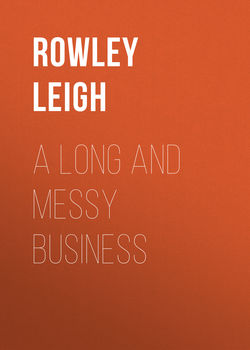Читать книгу A Long and Messy Business - Rowley Leigh - Страница 54
На сайте Литреса книга снята с продажи.
ОглавлениеCooking Stripped of Artifice
Acquacotta
I love shopping, cooking and eating with my friend
Filippo. He is a quietly spoken sort of chap whose
utterings, in a noisy household, are taken as absolute
wisdom. He is the most undemonstrative of Italians,
incapable of raising his voice or even waving his hands
in the air, yet it is not difficult to sense his pleasure or
displeasure. Despite my lack of Italian and his occasionally
faltering English, we get along very well. In the macelleria
he will distract the butcher with talk of local politics
while I scrutinise the meat. He will nod approvingly
when I instruct the butcher to cut us some ridiculously
extravagant veal chops, and purr with pleasure as we are
offered some titbit of lardo di Colonnata or salami to taste.
His tastes in food are both sophisticated and simple.
The last time I visited we debated the merits of three
different Pecorinos, because he has a passion for cheese.
Although not a native Roman, he adores – as do I – the
cuisine of his adopted city, whether it is the salty crunch
of a deep-fried artichoke, the bite of spaghetti cacio e pepe
or the vinegary rasp of puntarella dressed with anchovies.
However, Filippo’s life has taken a different turn. He
and his wife have built themselves a house up in the hills
of the Maremma and they drive up there almost every
weekend. We have had to extend our gastronomic
horizons. Although only just in Tuscany, the cuisine is
markedly different and more soft-edged than that of the
city. There is more bread, beans, steak, tomatoes and
prosciutto, and a lot more chicken liver crostini. Luckily,
the Pecorino Toscana passes muster. Yet Filippo and I
have now developed an obsession for a dish I had never
even heard of before, let alone tasted.
The beauty of acquacotta, as my friend sees it, is that it
is always different. One day it will be celery and tomatoes,
the next it will be cabbage and peas. A good cook will
make an acquacotta for every day of the year and never
repeat themselves. The translation of ‘cooked water’ is not
so far from the truth. There can certainly be no addition
of a stock, and only three or four vegetables at most. It
is a very simple dish and therein lies its appeal to me: it is
cooking stripped of artifice, and a careful hand is required
if it is not going to become rather ordinary.
81
March
